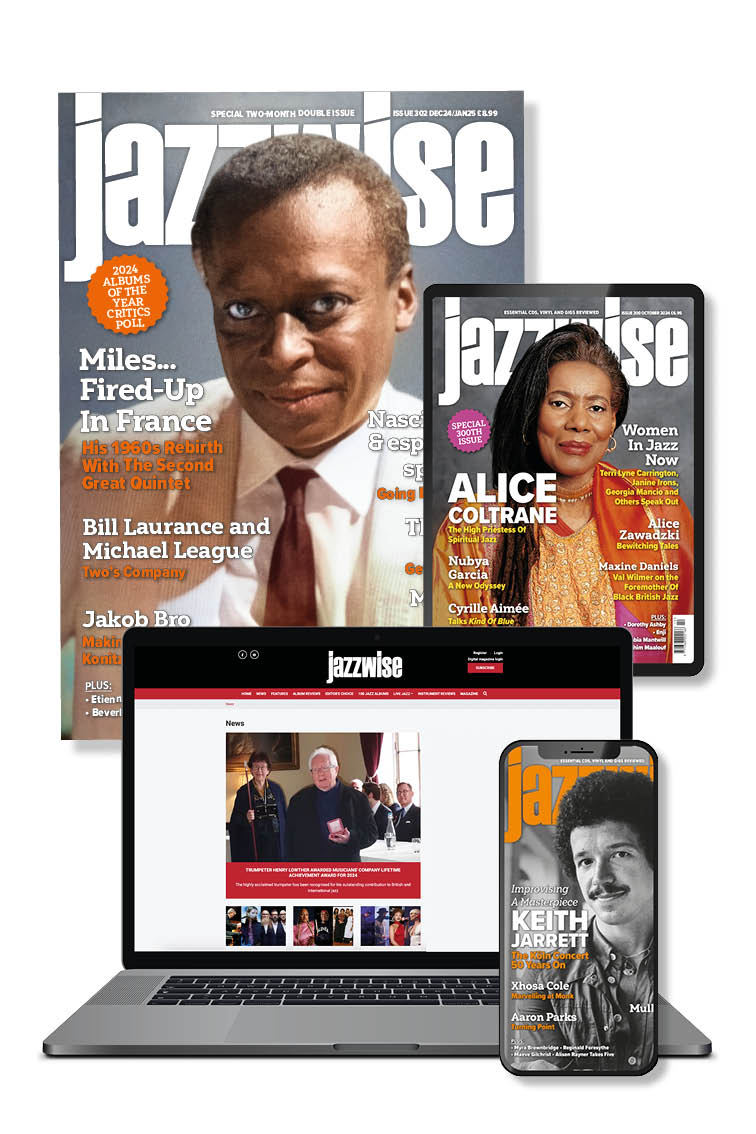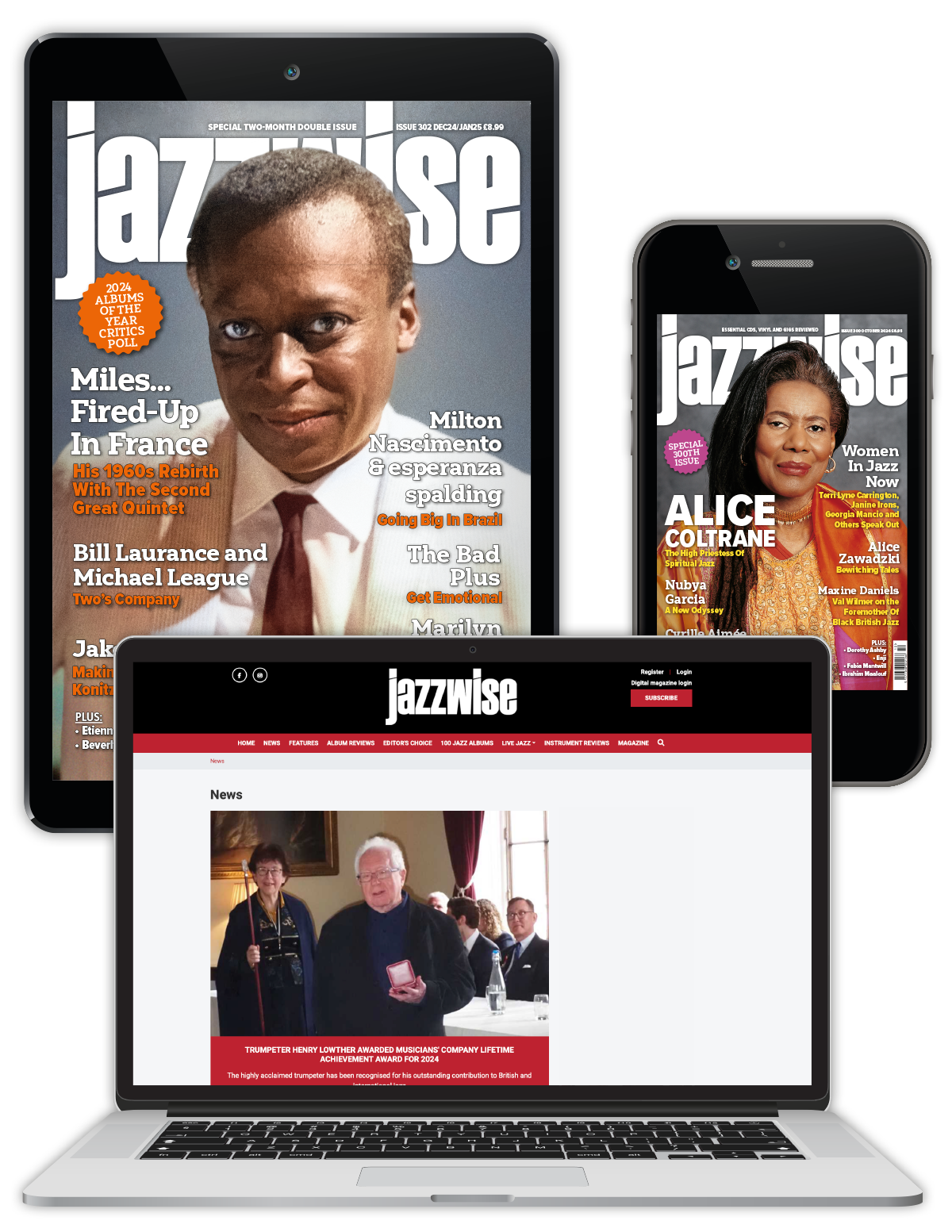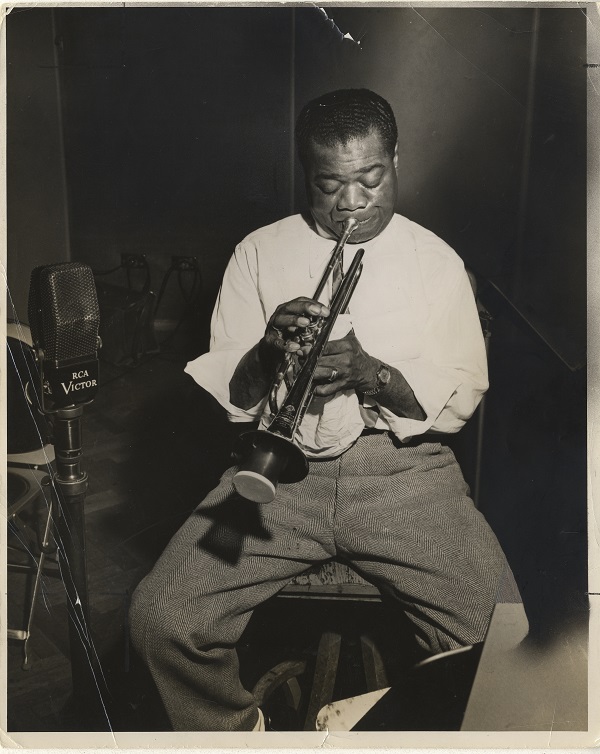Louis Armstrong: The Complete Columbia and RCA Victor Studio Sessions 1946-1966
Editor's Choice
Author: Alyn Shipton
View record and artist detailsRecord and Artist Details
Musicians: |
Fats Ford |
Label: |
Mosaic |
Magazine Review Date: |
May/2021 |
Media Format: |
7CD |
Catalogue Number: |
270-MD-CD |
RecordDate: |
Rec. 1946-1966. |
This impressive multi-disc box set comprises three main components: firstly the 1946-47 singles that Armstrong made for RCA during the last years of his big band and birth of the All Stars; secondly, the albums he made for George Avakian at Columbia in 1954-55, celebrating Fats Waller and W. C Handy; and thirdly the curate's egg that is his collaboration with Dave and Iola Brubeck, The Real Ambassadors, from 1961. These three courses are supplemented by several amuse-bouches in the form of Columbia single releases, including Armstrong's famous versions of ‘Mack The Knife’ and ‘Cabaret’, plus such oddities as a shaving commercial. With much of this material already available, the principal reason for acquiring this Mosaic box would be the excellent standards the company has set both for its technical remastering and for its accompanying annotation.
In both respects this sizeable box scores highly. Opening with the 1946 Esquire Award winners and a spoken introduction from Duke Ellington, there is an immediacy and clarity about the transfer missing from the most recent alternative issue, on the Fremeaux Complete Louis Armstrong Vol. 12. The ensemble has less reverb and a more natural studio ambience, with the solos singing out clearly. Equally, the 1946 big band sides sound clearer here than on RCA's own remastering, as part of the Bluebird reissues from the 1990s, produced by Steve Backer and John Snyder, which set the benchmark for quality at the time. Columbia reissued the Avakian albums relatively recently in 2009-2010, and the sound quality is comparable. The Mosaic box brings together a number of additional rehearsal and alternate takes from these mid-1950s sessions in a more comprehensive form than any previous issue.
The annotation is by the estimable Ricky Riccardi of the Armstrong House Museum, and in terms of plotting the day-to-day movements of Louis and his bands and the relationship between him, his manager Joe Glaser, and the various producers involved here (from the veteran Eli Oberstein, who had been at Victor since the early 1930s to Bob Johnston at CBS in 1966,) he plots a helpful and informative course.
Fine historian that he is, where Riccardi sometimes comes unstuck is that he is not a music critic. He finds it difficult to bring himself to be tough on some of the less successful records, and even when Louis was clearly on poor form instrumentally, as on the 1966 ‘Canal Street Blues’, he seeks out the positive, although he does mention that his hero was ‘no longer superman’.
He rightly reprints Trummy Young's comment that, on the Plays WC Handy album, the All Stars ‘played better than they ever had before or after’, and Riccardi then explains the editorial process used for these album reissues. Normally Mosaic presents each unvarnished take in sequence, alongside the issued versions. But George Avakian was an accomplished tape surgeon and built up the final release from several takes. So in this case, we hear the album as it came out, followed by the alternates in the order of appearance. This does involve a bit of dodging about in the discography if you want to hear everything in chronological sequence, but it makes perfect sense.
The problem with The Real Ambassadors is that it is irredeemably awful, and despite Riccardi's quote from Leonard Feather's positive review at the time, it has never made back its production budget. You can't help feeling that Louis sings about the niceties of ‘cultural exchange’ with his tongue firmly planted in his cheek. Lambert, Hendricks and Ross lose their habitual precision on the uptempo segment of the title track – not even Louis' stately section that follows can redeem it. The best that can be said for it here is that this release lays bare the entire recorded project and gives us the fullest yet exposition of the material. But compared to Louis' mastery elsewhere on this set, it remains one of the most curious and untypical items in his long and extraordinarily distinguished career.

Jazzwise Full Club
- Latest print and digital issues
- Digital archive since 1997
- Download tracks from bonus compilation albums throughout the year
- Reviews Database access
From £9.08 / month
Subscribe
Jazzwise Digital Club
- Latest digital issues
- Digital archive since 1997
- Download tracks from bonus compilation albums during the year
- Reviews Database access

